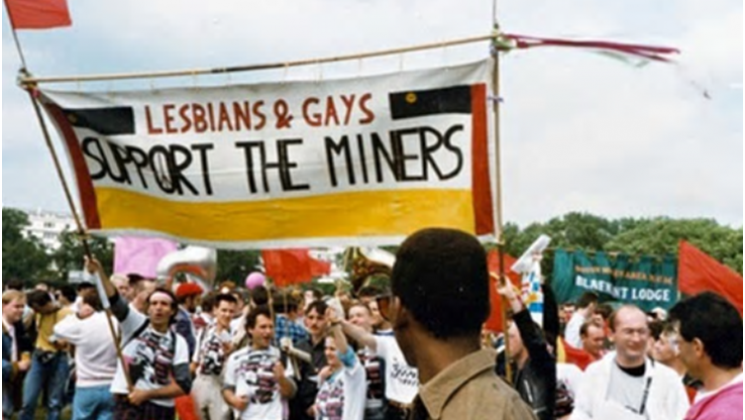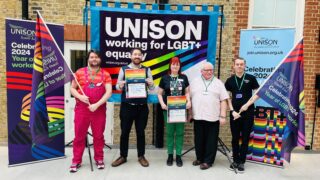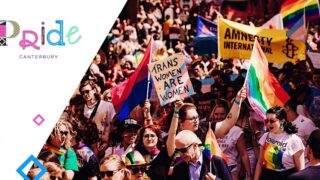Gethin Roberts spoke at the South East LGBT AGM, following the release of the film Pride, in which his character featured. The film explores the events following the 1984 Lesbian and Gay march, in which money and awareness was raised to support the miners in the UK. The film follows the relationship that developed between this group and a mining community in South Wales, Dulais Valley over the longest strike in history.
Roberts spoke about his initial reservations when this was proposed as a big budget film with Hollywood actors, rather than a documentary. He highlighted the fact there were naturally embellishments, but also that there were huge omissions; that a film cannot capture the vast political and historical backdrop on which this relationship lay, nor the scale of the widespread support for the miners at the time. Various LGSM groups worked with a multitude of mining communities across the UK, and the solidarity with the miners spread far beyond this, with mass support from many campaigning organisations.
There is a notable history of trade unionism, labour activism and civic campaigning within the LGBT community, dating back to the early 20th century. Much of the campaigning for rights and freedoms, including the decriminalisation of homosexuality under the sexual offences act fifty years ago, were won by trade union activists, particularly in the local government sector and UNISON’s former union NALGO.
The small mining communities in Wales also had an entrenched culture of activism and political engagement on an international scale. They had strong solidarity with Spanish miners rooting from the 1927 strike; and this culminated in involvement in the Spanish civil war, during which the Welsh miners sent aid to Spain. Historical relationships between the Welsh mining communities and young Indian doctors, wherein they created independent health services in these isolated Welsh communities, led to pervasive anti-colonial campaigning. Their strong political values and a dedication to strength in solidarity, led to a strong alliance between the lesbian and gay groups and the miners.
Pride has been a success internationally, and the LGSM group have visited viewings worldwide and gained an international perspective on LGBT rights. Aside from the commercial success of the film, and the awareness it raised, the money and publicity gained have facilitated the reform of the LGSM group, offering help to mining communities overseas. Support has been given to help the wives of miners who lost their lives in Turkey, giving them the opportunity to stay within their own communities. There was strong resonance with the LGBT groups in Turkey, and the film premiered at the Istanbul film festival. The group have also recently reformed as ‘Lesbians and Gays support the Migrants’, and have received extensive support and identification across the country.





